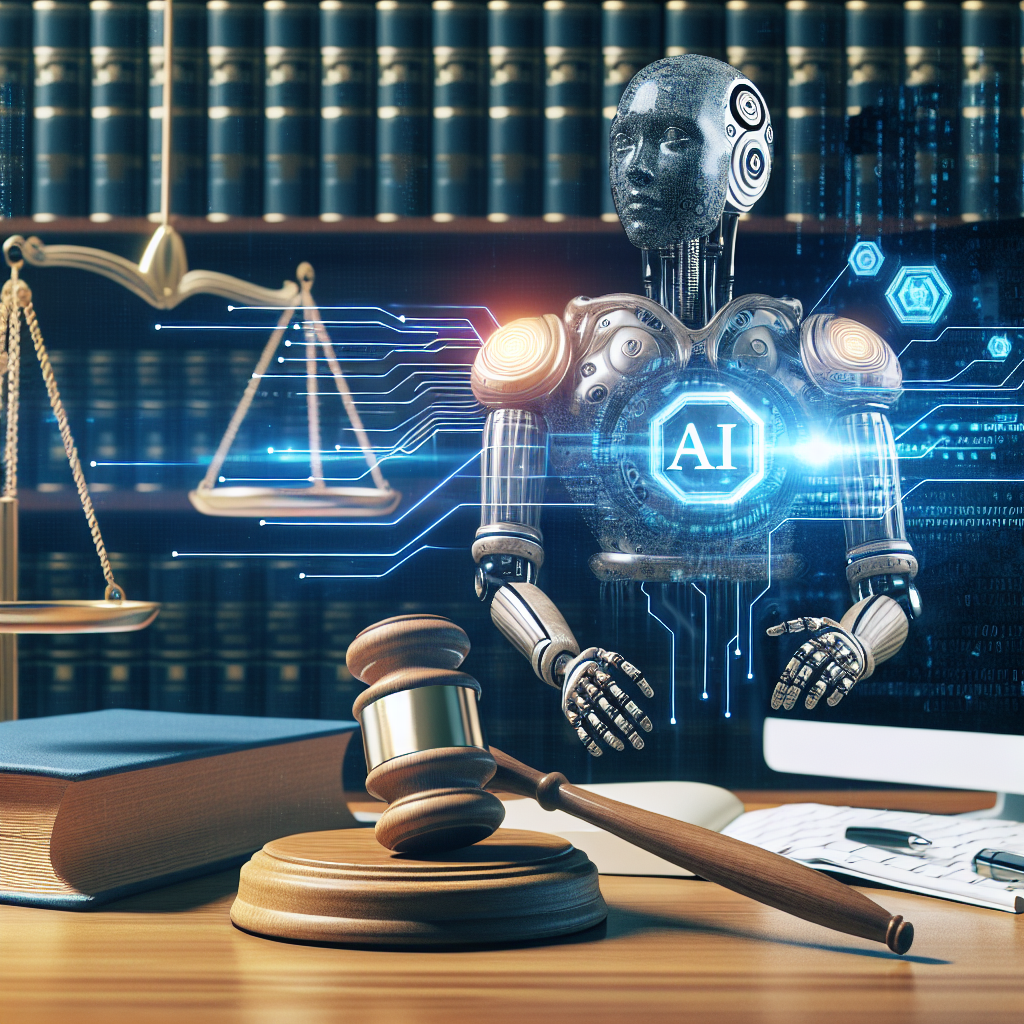The Potential of AI in Legal Practice Innovation
Artificial Intelligence (AI) has been making waves in various industries, revolutionizing the way tasks are performed and pushing the boundaries of what is possible. In recent years, the legal industry has also started to embrace AI technology to streamline processes, improve efficiency, and enhance client services. The potential of AI in legal practice innovation is vast, with the ability to transform the way lawyers work and deliver legal services to clients.
AI technology has the potential to automate routine tasks, such as document review and contract analysis, freeing up lawyers to focus on more complex and strategic aspects of their work. By using AI-powered tools, legal professionals can quickly sift through large amounts of data, identify relevant information, and make more informed decisions. This not only saves time but also reduces the risk of human error, leading to more accurate and consistent results.
One of the key areas where AI is making a significant impact in the legal industry is in legal research. Traditionally, lawyers spend hours researching case law, statutes, and regulations to build their arguments and develop legal strategies. With AI-powered research tools, lawyers can now access vast databases of legal information and quickly find relevant cases, statutes, and other legal materials. These tools can also analyze and summarize legal documents, saving lawyers valuable time and allowing them to focus on crafting persuasive arguments.
Another area where AI is revolutionizing legal practice is in contract analysis and drafting. AI-powered contract analysis tools can review and analyze contracts to identify potential risks, inconsistencies, and missing clauses. This not only speeds up the contract review process but also helps lawyers ensure that contracts are compliant with legal requirements and protect their clients’ interests. AI-powered contract drafting tools can also help lawyers create customized contracts based on predefined templates, saving time and reducing the risk of errors.
AI technology is also being used to improve client services in the legal industry. Chatbots powered by AI can provide instant responses to client inquiries, schedule appointments, and provide basic legal information. This not only improves client satisfaction but also frees up lawyers to focus on more complex and high-value tasks. AI-powered tools can also help lawyers track billable hours, manage case files, and streamline administrative tasks, allowing them to be more efficient and productive.
Despite the potential benefits of AI in legal practice innovation, there are also concerns about the impact of AI on the legal profession. Some fear that AI technology could replace human lawyers, leading to job losses and a decline in the quality of legal services. However, many experts believe that AI will complement rather than replace human lawyers, allowing them to work more efficiently and effectively. By leveraging AI technology, lawyers can enhance their skills, improve their productivity, and deliver better outcomes for their clients.
FAQs
Q: How is AI being used in legal practice?
A: AI is being used in legal practice to automate routine tasks, such as legal research, contract analysis, and document review. AI-powered tools can quickly sift through large amounts of data, identify relevant information, and make more informed decisions, saving time and reducing the risk of errors.
Q: What are the benefits of using AI in legal practice?
A: The benefits of using AI in legal practice include increased efficiency, improved accuracy, enhanced client services, and better decision-making. AI technology can help lawyers streamline processes, focus on more complex tasks, and deliver better outcomes for their clients.
Q: Will AI replace human lawyers in the future?
A: While there are concerns that AI technology could replace human lawyers, many experts believe that AI will complement rather than replace human lawyers. By leveraging AI technology, lawyers can enhance their skills, improve their productivity, and deliver better outcomes for their clients.
Q: How can lawyers leverage AI technology in their practice?
A: Lawyers can leverage AI technology in their practice by using AI-powered tools for legal research, contract analysis, document review, client services, and administrative tasks. By incorporating AI technology into their practice, lawyers can work more efficiently and effectively.
In conclusion, the potential of AI in legal practice innovation is vast, with the ability to transform the way lawyers work and deliver legal services to clients. By leveraging AI technology, lawyers can automate routine tasks, improve efficiency, and enhance client services. While there are concerns about the impact of AI on the legal profession, many experts believe that AI will complement rather than replace human lawyers, allowing them to work more efficiently and effectively. As AI technology continues to evolve, the legal industry will likely see further advancements in AI-powered tools and solutions that will revolutionize the practice of law.

